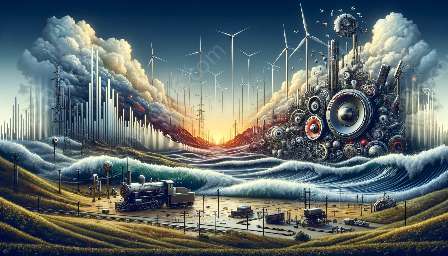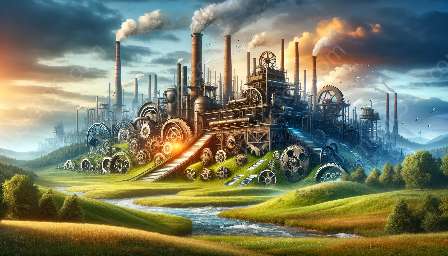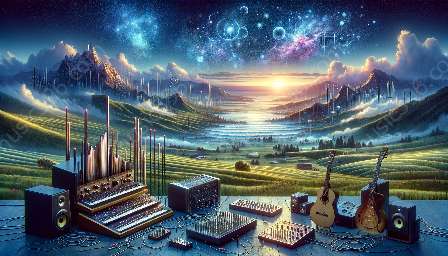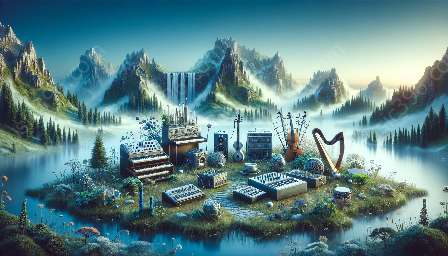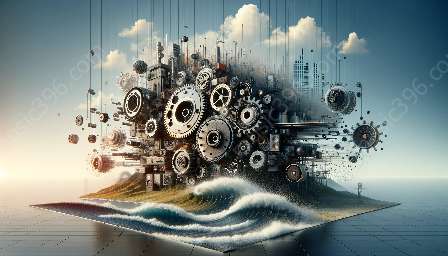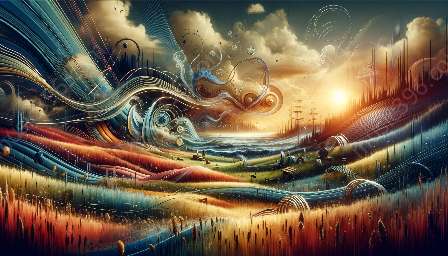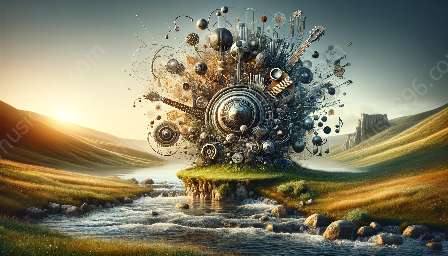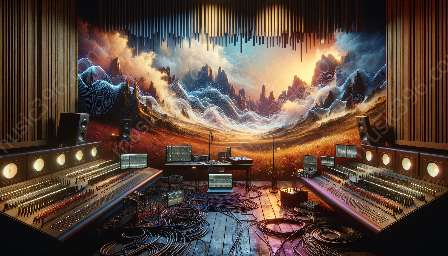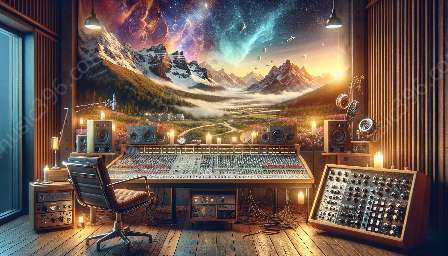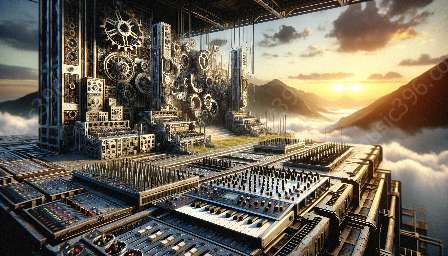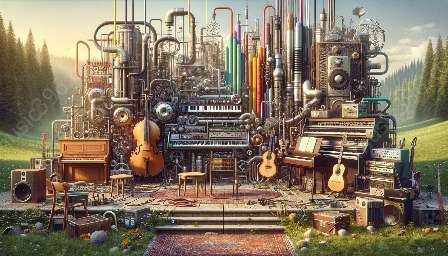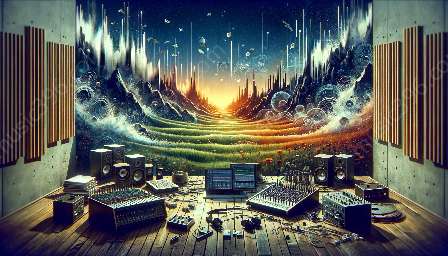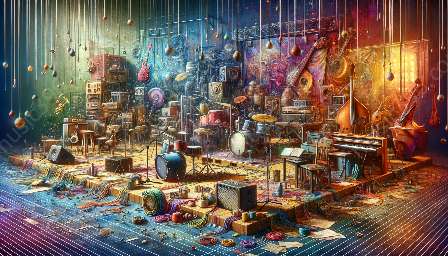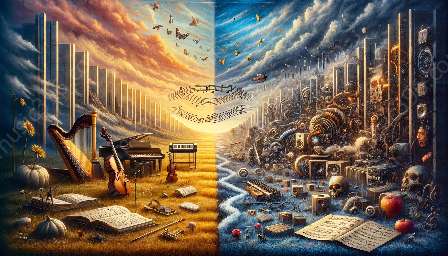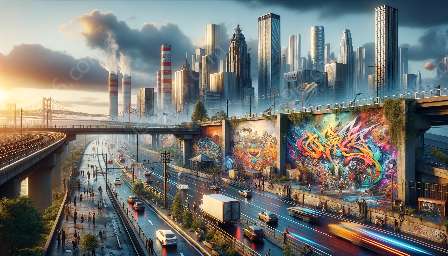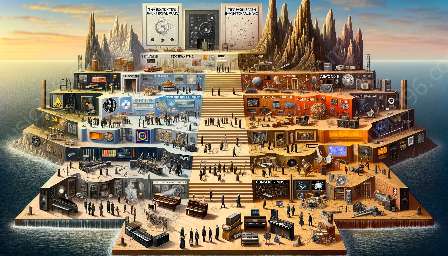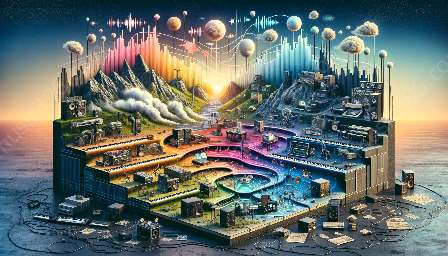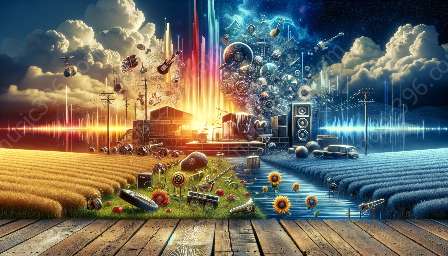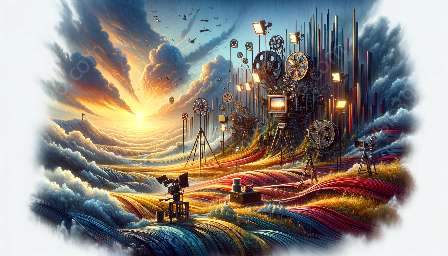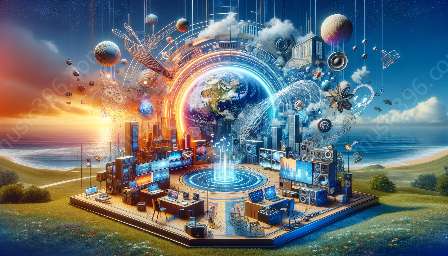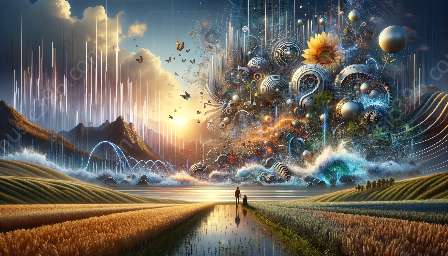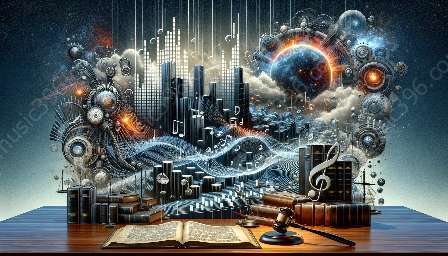When examining the Industrial Revolution's influence on music generation, it becomes evident that it has significantly impacted the creative process and experimentation in music production. The transformation of societal, technological, and cultural landscapes during this era has left an indelible mark on the world of music and its evolution towards experimental and industrial genres.
The Impact of Industrial Revolution on Music Generation
The Industrial Revolution, spanning from the late 18th to early 19th century, marked a monumental shift from agrarian and handcrafted production to mechanized and industrialized processes. This period brought about profound changes in the way people lived, worked, and expressed themselves, leading to a host of developments that reverberated across various artistic disciplines, including music.
One of the most notable impacts of the Industrial Revolution on music generation was the emergence of new technologies and tools for music production. The invention of mechanical instruments, advancements in recording and playback devices, and the standardized production of musical instruments revolutionized the way music was created, performed, and consumed. This technological revolution laid the groundwork for experimentation and innovation in music, providing musicians with new avenues for creative expression.
Creative Process and Experimentation in Music Production
The Industrial Revolution's impact on the creative process in music production was multifaceted. As industrialization brought about increased urbanization and a shift towards factory-based work, it also fostered a dynamic cultural milieu that influenced artistic creation. The urban environment, with its cacophony of industrial sounds and bustling energy, provided a rich source of inspiration for musicians seeking to incorporate these newfound sonic textures into their compositions.
Furthermore, the industrialization of music production itself contributed to the evolution of the creative process. The standardization and mass production of musical instruments allowed for greater accessibility to diverse sounds and timbres, stimulating experimentation and creativity among musicians. This, in turn, led to the exploration of unconventional musical techniques and the development of new musical genres that challenged traditional norms and structures.
The Emergence of Experimental and Industrial Music
The confluence of industrialization, technological innovation, and shifting cultural paradigms paved the way for the rise of experimental and industrial music. Experimental music, characterized by its departure from conventional tonalities and structures, found fertile ground in the wake of the Industrial Revolution. Musicians, emboldened by the spirit of experimentation and fueled by the possibilities presented by emerging technologies, began pushing the boundaries of what constituted music.
Industrial music, with its roots in the industrial soundscape of the era, harnessed the discordant, mechanical, and rhythmic elements of industrialization to create a genre that mirrored the social and technological upheavals of the time. Artists sought to capture the mechanized pulse of the industrial age through their compositions, utilizing unconventional instrumentation, electronic manipulation, and stark, dystopian themes to convey the visceral impact of industrialization on the human experience.
Legacy and Contemporary Significance
The legacy of the Industrial Revolution's impact on creative process and experimentation in music production endures in the contemporary music landscape. The spirit of innovation and boundary-pushing experimentation fostered during this era continues to inspire musicians across genres, laying the groundwork for ongoing exploration of unconventional sonic territories and avant-garde compositions.
From the avant-garde electronic compositions of the 20th century to the experimental soundscapes of contemporary artists, the influence of the Industrial Revolution on music generation remains palpable. Its imprint on the trajectory of music production and the evolution of experimental and industrial music serves as a testament to the enduring impact of historical and technological shifts on artistic expression.


